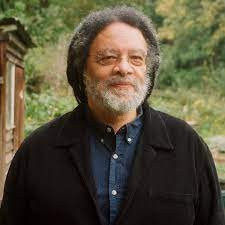Gilroy, Paul

Bio: (1956-) British sociologist. Paul Gilroy holds a doctorate in cultural studies from the University of Birmingham and has taught at Yale University and the London School of Economics. His work is interdisciplinary and ranges between literary criticism, sociology, critical historiography, cultural studies, and musicology. He has contributed to many areas, and his works always deal with the complex interrelationships of modernity, race, state, nationalism, and culture. Gilroy opposes views that view race as a biological or cultural category. Gilroy states that the emergence of a specific "race" is an ongoing process in which groups of people are defined and organized around the idea of race, with resistance to racism, and the political organization of people that are grouped into a "race", playing a major role. Gilroy's analysis of racism in Britain, after the Second World War, focuses on the issue of cultural differences between members of other races in relation to the British and their culture. The cultures of other races are presented as outsider cultures and anarchic.
Gilroy emphasizes that cultures are constantly in the process of changing, so the music made by people of Afro-Caribbean origin was a mixture of original African musical influences and responses to racism and oppression. The later acceptance of that music by the general population is proof of the constant changes that are taking place in the field of culture. Gilroy found that black communities in Britain were presented to the public either as victims or as problems, while they were increasingly regulated by an increased police presence and the criminalization of the inhabitants of those communities.
He believes that the concept of the diaspora is very important for understanding the position of black people in Britain. The idea of the diaspora is associated with slavery and forcible removal from Africa. Diaspora culture preserves the memory of the past, which is reflected in the music and literature of British black people. In the twenty-first century, multiculturalism emerged, shaped by the desire of corporations to profit from it. Black athletes and musicians are increasingly more present in the British public and popular culture, but successes in sports have led to the codification of the black body as a superman – black people are perceived either as great athletes or as brutal, non-human criminals. Gilroy also opposes the discourse of anti-racism, which overemphasizes racial differences, because it overlooks the mixing of racial, ethnic, class, and other identities. Gilroy hopes that the workers can unite with members of racial minorities, to jointly fight against exploitation and racism.
Fields of research
Art Body Community Corporations Crime Culture Ethnicity Exploatation, Economic History Identity Modernity Multiculturalism Police Politics Race Sign and Symbol Sports State Working ClassTheoretical approaches
Cultural Studies (Critical Pedagogy)Main works
The Empire Strikes Back: Race and Racism in Seventies Britain (1982);
There Ain’t No Black in the Union Jack: The Cultural Politics of Nation and Race (1987);
The Black Atlantic: Modernity and Double Consciousness (1993);
Small Acts: Thoughts on the Politics of Black Cultures (1993);
Between Camps: Nations, Cultures and the Allure of Race (2000);
After Empire: Melancholia or Convivial Culture (2004);
Darker Than Blue: On The Moral Economies of Black Atlantic Culture (2010).

